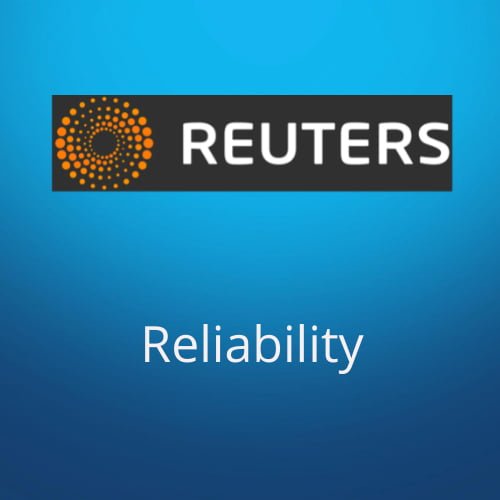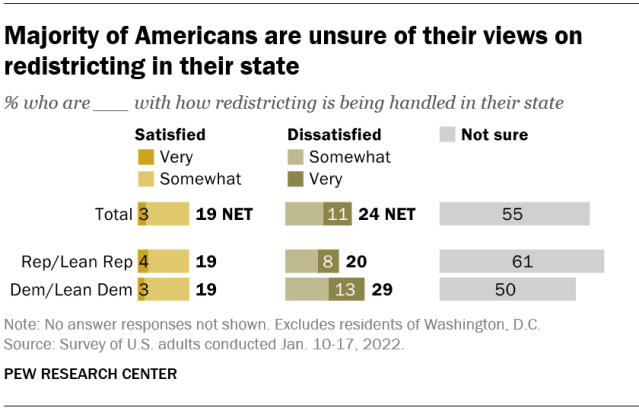
Reuters is a global news agency that provides news and information to businesses, governments, and individuals. Founded in London in 1851, it has over 2,500 journalists and 600 photojournalists working in about 200 locations around the world. It is one of the largest news agencies in the world, and its news is widely distributed across a range of media outlets, including newspapers, magazines, websites, and television stations.
Reuters has a storied history of providing accurate and unbiased news, and it is one of the most respected news organizations in the world. However, with the increase in fake news and misinformation, it’s become critical to be able to distinguish reliable sources from unreliable ones. A 2022 Economist/YouGov poll found that only 29% of Americans found Reuters trustworthy.
It is important to note that most Americans get news from the wire services like Reuters through another news outlet that carries their syndicated content. Moreover, polls are just snapshots in time, and the credibility of any news organization can fluctuate over time.
In this article, we will dive into various aspects of Reuter’s accuracy and reliability to help readers make informed decisions.
Does Reliability Matter?
Reliability, in general, refers to how trustworthy or accurate information, or in this case, a news source is. If we consider this definition, it quickly becomes clear why reliability is important in media sources. If we can’t trust the things we read then there isn’t much of a point in continuing to consume content from that source, after all. So how exactly can we gauge the reliability of a news source anyways?
There are several potential measures of reliability to look out for when trying to determine whether a media source is reliable or not. Red flags for an unreliable article can include the presence of wild unsubstantiated claims, facts dependent on other unreliable sources, heavy use of opinionated language, and more. Some indicators of a reliable news source, on the other hand, include things like:
- Absence of subjective/opinionated language in articles
- Credible sources cited (e.g., neutral sources, .gov, .edu websites)
- Facts and statistics backed by multiple relevant outside sources
- Use of primary sources when possible (e.g., interviews, quotes)
- Information that remains consistent across news sources
How Does Reuters Fare In Its Reliability?
The political reliability index developed by Biasly objectively assesses news organizations’ accuracy and trustworthiness. Reuter’s overall Reliability Score has been rated as ‘Good’ by Biasly. This rating is a weighted average of two distinct scores: the Fact Analysis Score and the Source Analysis Score, each evaluating separate components of Reuters’s Reliability. When computing the Average Reliability of the article the Fact Analysis score is more heavily weighted. These ratings are as follows in the next two paragraphs:
Reuter’s Fact Analysis Score is ‘Excellent,’ which suggests readers can trust almost all of Reuter’s content online. The Fact Analysis score focuses more on the accuracy of claims, facts, and sources presented in the article and any hints of selection and omission bias, which we will discuss further in the article.
Reuter’s Source Analysis Score is ‘Fair,’ which suggests readers can trust some of the sources, links, and quotes provided by the news source. This score, which is based on A.I., focuses on assessing the quality of sources and quotes used including their number, lengths, uniqueness, and diversity.
However, since these scores are based on percentages and averages, individual articles could be more or less trustworthy depending on the context, author, and other factors. Our findings show that Reuter’s reliability is mostly but not all factual because they have retracted several stories in the past or had pieces that were not factual.
Let us analyze the supporting data for Reuter’s rankings and discuss what to watch out for while searching for trustworthy news sources.
Reuters Accuracy and Reliability
Given the acrimonious debate and highly polarized political climate, there has been much scrutiny regarding the dependability and truthfulness of articles in the media, including Reuters. Reuters operates under the Trust Principles, the core of which states, “Reuters is dedicated to preserving its independence, integrity and freedom from bias in the gathering and dissemination of news and information.” However, the question remains as to where Reuters falls on the ideological spectrum and how this affects the credibility and accuracy of its articles.
When evaluating the degree of bias in an article, it is crucial to consider its accuracy. This entails determining whether the article presents factual information to support its claims. Two significant factors to consider in assessing an article’s factual and accuracy levels are checking the accuracy of its claims and sources and evaluating its selection and omission bias.
Selection bias is when stories and facts are selected or deselected, often on ideological grounds, to create a narrative in support of the new sources’ ideology. Omission bias, on the other hand, is when different opinions and political views regarding a situation are left out, so that the reader is only exposed to the ideological perspective supported by the author. It’s important to keep in mind these two types of biases when trying to assess an article’s level of accuracy.
Biasly uses a scale of 1-100 to rate accuracy where 1 is totally inaccurate and 100 is completely accurate. Media sources are ranked by analyzing their credible sources, their ability to reason with facts, and the number of credible external sources used in their articles. Biasly’s analysts gave Reuters an “Excellent” accuracy score, which represents the reliability of their online articles on average. With a media bias score of Center by A.I. technology. Comparatively, the Associated Press received a Left-Center Biased rating due to left-leaning editorializing of news stories and more frequently conducting fact checks on conservatives compared with liberals.
The reliability of news articles can vary from one article to another. This is often due to the presence of bias, specifically selection and omission bias. Articles with more political bias tend to be less reliable, as they may omit or downplay important information that does not support their point of view.
Let’s look at two articles that show how bias can affect the reliability of news, despite being from the same news source.
For example, an article titled, “W. Va. city, drug distributors trade final words in landmark opioid trial” demonstrates a good example of reliability by Reuters. This article received a Center-Right analyst bias score and an “Excellent” Reliability Score from Biasly.
In terms of selection and omission bias, the author strikes a neutral balance by including perspectives from the plaintiff, defendant, and background information on the opioid crisis. When it comes to accuracy, the report on this story is thorough and informative. Most importantly, it does not attempt to color anyone’s view of the ongoing litigation and sway it one way or another.
Now, consider another example, this piece titled “In win for Republicans, North Carolina court allows partisan gerrymandering.” The slightly left-leaning headline seems to suggest that Republicans are the only ones in favor of partisan gerrymandering when Democratic lawmakers in strongholds like New York have indulged in the very same tactics. A survey by Pew Research Center in 2022 found that while more Americans are dissatisfied (24%) than satisfied (19%) with how redistricting is handled, 55% say they are unsure of where they stand on the issue. But what is striking is the very modest partisan differences in views of redistricting.

Source: Pew Research
While it may have not been intentional, the picture alongside the headline shows voters lining up in the dark a few minutes before polls close, separated from the light by metal bars, much like in a jail cell. It ties into the dissent by Justice Anita Earls, a Democrat who calls it the court’s darkest moments. It appears to set the tone for the rest of the article, interspersing facts with a hint of opinion.
Another problem with this article is its sourcing. Reliable articles tend to give equal weight to sources and individuals representing each side of the issue. The author states that voting rights groups decried the decision as an attack on democracy itself. He then proceeds to quote Bob Phillips, executive director of Common Cause North Carolina as saying, “I think it’s the worst decision the North Carolina Supreme Court perhaps has ever made.” The paragraph is titled, “WORST DECISION EVER”. What is omitted is that Common Cause is identified with liberal, progressive policy agendas. Common Cause is leaning left though Common Cause itself identifies as non-partisan. Common Cause is rated High for factual reporting and it is not wrong to quote them but clearly labeling sources to identify any biases is a must.
Reuters is a news agency that is known for its objective and unbiased reporting. However, some people believe that Reuters has a left-wing bias. Reuters relies on various sources for its news, including government officials, business leaders, and academics. It also relies on non-governmental organizations (NGOs) and advocacy groups. Some of these groups may have a left-wing bias, and their reports may reduce the reliability of Reuters’ coverage.
So Is Reuters Reliable?
Reuters is a generally reliable news source, but the reliability of its articles can vary depending on the author and the type of article. To get an idea of the reliability of a specific article, you can use the Biasly News Check Chrome extension.
It’s important to note that some articles are better at maintaining neutrality and factuality than others. As you continue to analyze the bias and reliability of various articles, you will start to understand how to better spot reliability and accuracy problems within a person’s writing and ultimately improve your media literacy.






















